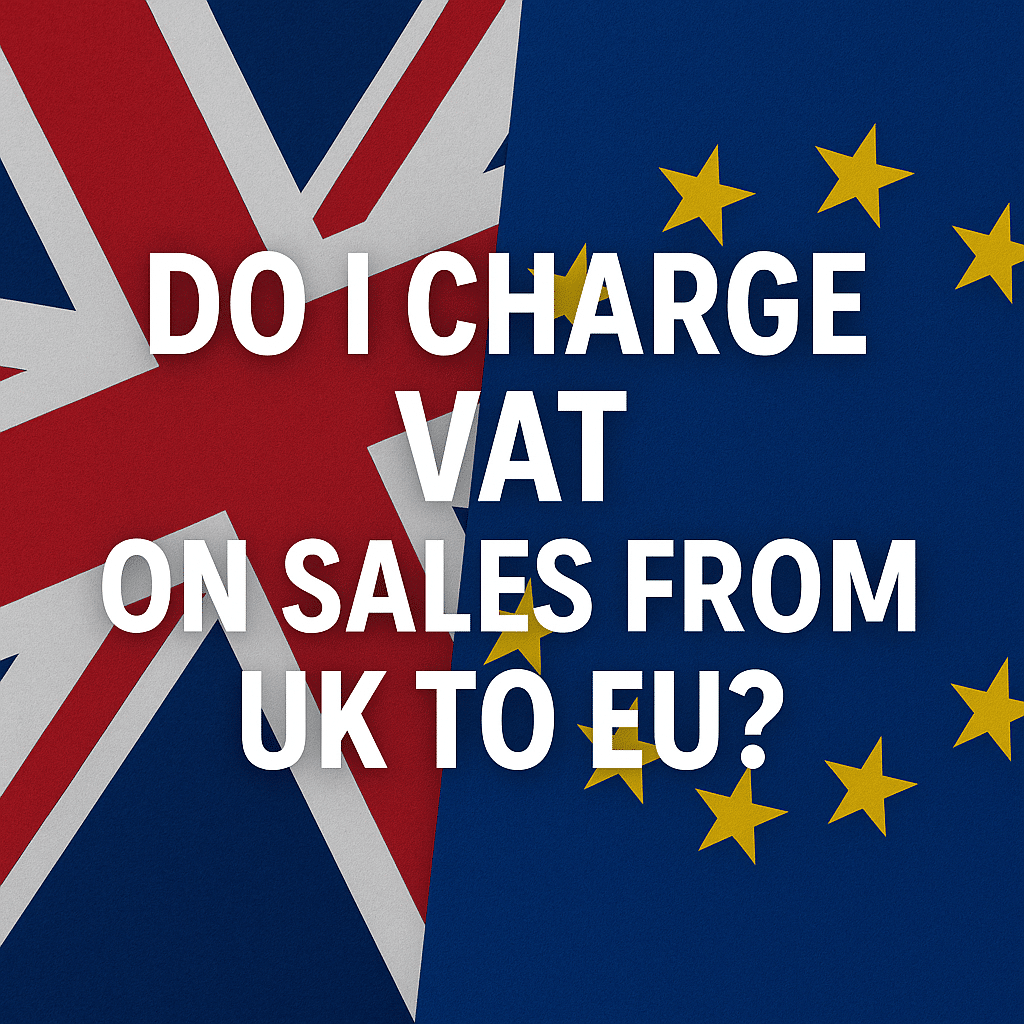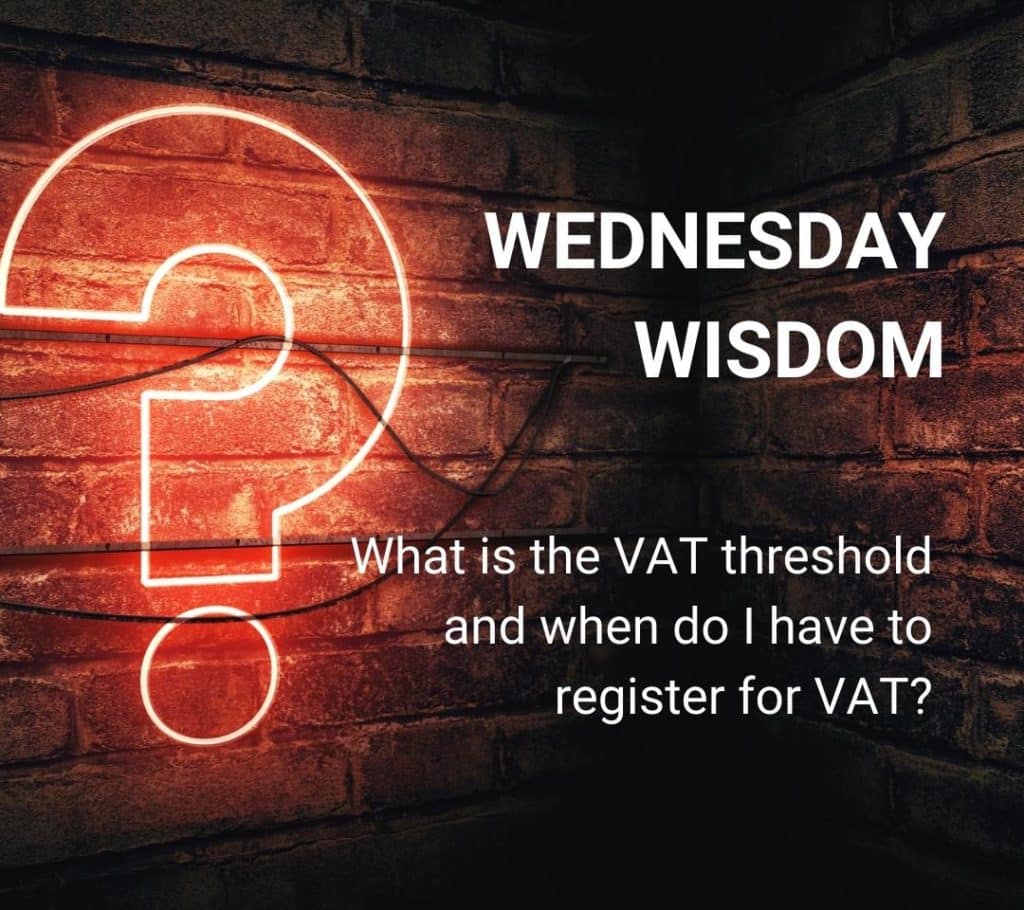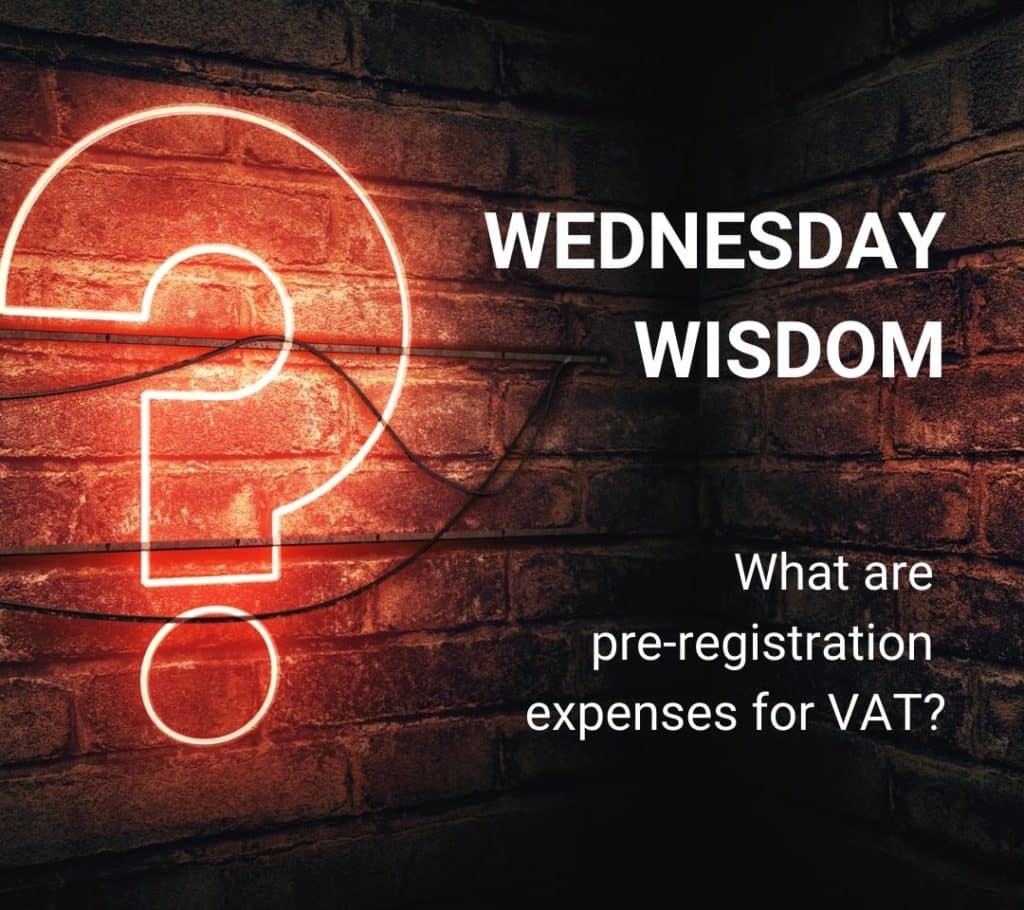Since Brexit, the VAT rules for selling from the UK to the EU have become complex, so you might be right in asking the question: Do I charge VAT on sales from UK to EU?
Getting your VAT calculations wrong can be costly, leading to surprise fees, unhappy customers, and official penalties.
Your requirements depend on:
- what you’re selling
- who you’re selling to (a business or an individual)
- their EU country.
This post breaks down the essential rules to help you sell goods and services to the EU without the confusion.
Creative Takeaways
- Goods exported from the UK to the EU are zero-rated for UK VAT, but you must keep export evidence to satisfy HMRC.
- EU import VAT is usually due at the border, with customers often paying it unless you use the IOSS scheme for goods under €150.
- Storing goods in the EU orusing fulfilment centres requires local VAT registration, meaning you must charge VAT in that country.
- B2B services to EU businesses do not attract UK VAT, as the reverse charge applies in the customer’s country.
- B2C services require VAT charged in the customer’s EU country, with digital services always taxed where the consumer is based.
Table of contents
1. VAT on goods exported from the UK to the EU
When you export goods from the UK to EU countries, the starting point is simple: you don’t charge UK VAT. These exports are usually zero-rated, but you must keep proper evidence of export in case HMRC asks for proof.
Once the goods reach the EU, things change.
Import VAT is usually due at the border, and it’s the customer who often pays it before receiving their order. This can lead to delays or unexpected costs unless you make it clear upfront.
For parcels valued at €150 or less, you can use the Import One Stop Shop (IOSS) scheme. This lets you charge the correct EU VAT at checkout and pay it through a single EU return, instead of leaving the customer to deal with import VAT on delivery.
If you store goods in an EU warehouse, or use fulfilment centres inside the EU, you’ll need to register for VAT in that country and charge local VAT on sales.
2. VAT on services supplied to EU customers
Services are treated differently from goods, and the rules depend on whether you’re selling to a business (B2B) or a consumer (B2C).
Selling B2B services to the EU
For B2B services, the general rule is that you don’t charge UK VAT.
Instead, the EU business customer accounts for VAT in their country using the reverse charge mechanism. Your invoice should show your VAT number and a note that the reverse charge applies.
Charge VAT for B2C services for EU consumers
For B2C services, the place of supply rules decide where VAT is due. In many cases, that means you’ll need to charge VAT in the country where the consumer lives.
Special VAT rules for digital services to the EU
Digital services (software subscriptions, downloads, or online training) have their own strict rules.
These are always taxed where the consumer is based, and you must either register for VAT in each EU country or use the non-Union One Stop Shop (OSS) scheme to report all EU sales through a single return.
3. When you must register for EU VAT
In some cases, selling from the UK to EU customers means you’ll need to register for VAT in the EU.
This usually happens if:
- You hold stock in an EU country or use an EU fulfilment centre.
- You sell digital services directly to EU consumers.
- Your sales exceed local VAT registration thresholds in certain EU countries.
If any of these apply, you’ll need to register for VAT in the relevant EU member state and charge local VAT on your sales.
For digital services and low-value goods, the One Stop Shop (OSS) and Import One Stop Shop (IOSS) schemes can make life easier. These let you register in just one EU country and use a single VAT return to report sales across multiple EU states.
Failing to register when you should can lead to fines, backdated VAT bills, and even having goods blocked at the border!
4. Invoicing and VAT reporting rules
The way you issue invoices depends on who your customer is and what you’re selling.
- B2B sales of services: Your invoice should show your UK VAT number and include a note that the reverse charge applies. This tells the EU business customer they are responsible for accounting for VAT in their country.
- Exports of goods: Invoices must support the zero-rating of UK VAT, so include details such as proof of export. Without this evidence, HMRC could treat the sale as subject to UK VAT.
- B2C sales of services and digital services: If you’re registered under OSS or IOSS, charge VAT based on the customer’s country and show this clearly on the invoice.
For VAT reporting, UK businesses still submit their regular UK VAT return, but EU VAT collected through OSS or IOSS must be reported separately. If you’re registered locally in an EU country, you’ll also need to file returns there according to local VAT rules.
5. Common VAT mistakes to avoid
Even businesses that mean well can get caught out by VAT rules on UK–EU sales.
Here are the mistakes to watch for:
- Charging UK VAT on exports: Goods sent to the EU should usually be zero-rated. Adding UK VAT makes your prices less competitive and can cause problems reclaiming tax later.
- Not keeping proof of export: HMRC requires clear evidence. Without it, they can treat the sale as subject to UK VAT.
- Ignoring OSS or IOSS for digital services and low-value goods: If you don’t register, your EU customers may face unexpected VAT charges on delivery, which damages trust.
- Overlooking local VAT obligations: Storing goods in EU warehouses or selling services beyond thresholds can trigger VAT registration in that country.
- Vague invoicing: Forgetting to include VAT numbers, reverse charge notes, or country-specific VAT can lead to compliance issues.
6. Getting expert VAT support from WallsMan Creative
The VAT rules between the UK and EU can feel like a maze.
Mistakes can be costly if you’re exporting goods, selling digital services, or working with EU business customers. Every scenario has its own treatment.
If you want clarity and confidence, it helps to have support from people who understand both UK VAT rules and EU requirements. At WallsMan Creative, we specialise in helping creative businesses handle their accounts and stay compliant with VAT, so you can focus on running your business without worrying about the paperwork.




